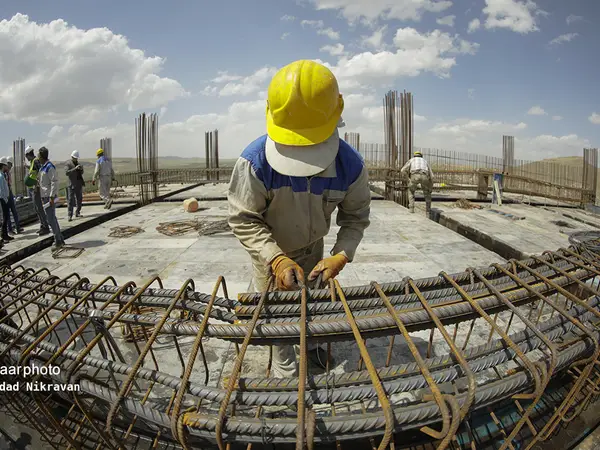Officials in Iran are busy haggling over minimum wage for the new year beginning Tuesday, as inflation is soaring and the rial losing half of its value in six months.
A 15-hour-long session of the Supreme Labor Council ended on Saturday without reaching a final figure for the next year’s minimum monthly wage. The minimum needed for an average family to simply survive is about $310 to $390 a month, but even if the government manages to double the current minimum salary of around $100, it will fall way short of the amount needed.
The Supreme Labor Council, which consists of representatives of workers, employers, and the government, is the Islamic Republic’s mechanism to determine the salaries of the workers, in the government controlled economy.
The government has already decided to give its employees both in the administrative bureaucracy and its business enterprises a mere 20-percent raise.
Labor representatives insist that next year’s minimum wage in the non-governmental sector should be on par with the inflation of over 50 percent, but government representatives are of the idea that salaries should increase at about the same rate that public-sector employees are set to receive.
Labor groups walked out of the Friday meeting as a sign of protest, but they returned to bargaining at the request of the labor minister.
According to the centrist website Entekhab, pundits believe that the Council will settle on a final figure of about 70,000,000 to 80,000,000 rials (between about $155 to $180 at today’s exchange rates). The government and employers are pushing for these figures, but labor rights activists say that according to the inflation rate and official statistics of the poverty index, next year's wage figure should not be set below 100,000,000 rials (about $220).
According to the International Labor Organization, the purpose of minimum wages is to protect workers against unduly low pay.
According to Iran’s Minister of Cooperatives, Labour and Social Welfare Sowlat Mortazavi, the final session will be held on Sunday, the last working day of the Iranian year. In addition to Mortazavi, Minister of Economic Affairs and Finance Ehsan Khandozi and Minister of Industry, Mines and Trade Reza Fatemi Amin represented the administration of President Ebrahim Raisi in the session.
When the government submitted the budget bill to the parliament in January, it sought to significantly increase the minimum monthly salary for the next Iranian year (starting March 21) but considering the steep devaluation of the rial in February, this seems out of reach.
The impact of rial’s fall will be highly reflected in the real value of the government’s proposed minimum wage increase of 20 percent for the next year. Since early December, the rial has fallen by around 30 percent. Many commodities already cost at least 30 percent more than the wage increase for government employees which will come into effect on March 21.
Iran has one of the lowest minimum wages in the world, but wages were increasing from 20 years ago to about 10 years ago when the minimum wage hit a record high of about $275 a month in 2010. This coincided with the time when the United Nations Security Council began imposing sanctions to force Tehran to roll back its nuclear program.
In January 2023, minimum wages in the EU member states ranged from $410 per month in Bulgaria to $2,500 per month in Luxembourg.
Iranian workers were earning more than $300 a month before the United States imposed sanctions in 2018, which pushed Iran’s currency almost ninefold lower, creating inflation that wages have not kept up with.
Rising prices and economic hardship have led to repeated labor strikes and nationwide protests since 2017, even before the imposition of US sanctions. Iran’s centrally controlled economy is inefficient and not conducive to foreign investments, with high reliance on oil exports.
The only reprieve can come from a suspension of US oil export and international banking sanctions if Iran would agree to a deal with the United States and its chief European allies. However 18 months of talks hit a dead-end in September and sanctions remained in place.
